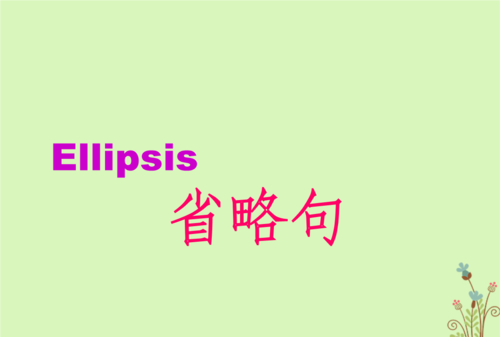英语中的省略句是通过省略一些语法成分或词汇来使句子更简洁、流畅。常见的省略包括主语省略、助动词省略、be动词省略、省略to和省略that。正确使用省略句可以使英语表达更自然,但使用不当可能导致句意不清晰,因此要确保语句的逻辑性和语法正确性。

以下是一些常见的英语省略句:
1. 主语省略
在英语中,如果前后句主语相同,就可以省略掉后面的主语。例如:
-
A: What did you do this weekend?
-
B: I went to the beach. (I [went to the beach].)
-
A: Have you finished the report?
-
B: Not yet. (I [have not finished the report].)
2. 助动词省略
在英语中,有些情况下可以省略掉助动词。例如:
- She is studying English.(She [is] studying English.)
- I have never been to Japan.(I [have] never been to Japan.)
- They will be arriving at the airport soon.(They [will] be arriving at the airport soon.)
3. be 动词省略
在英语中,be 动词有时也可以省略。例如:
-
A: Where is your sister?
-
B: In her room. (In [her room].)
-
A: How old is your brother?
-
B: 25. (He [is] 25.)
4. 省略 to
在英语中,有些动词后面的 to 可以省略掉。例如:
- I want [to] go home.
- He needs [to] practice more.
- She likes [to] read books.
5. 省略 that
在英语中,有些情况下 that 可以省略掉。例如:
- She said (that) she was tired.
- I think (that) it's going to rain.
- He believes (that) she will come back.
需要注意的是,省略句使用得当时可以让句子更加简洁、流畅,但如果使用不当,就会导致句意不清晰,给人造成困惑。因此,在使用省略句时,一定要根据具体情况来判断是否可以省略,并且要保证语句的逻辑性和语法正确性。
